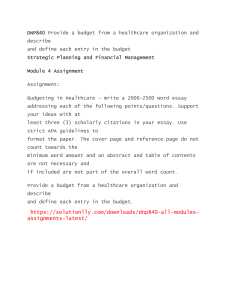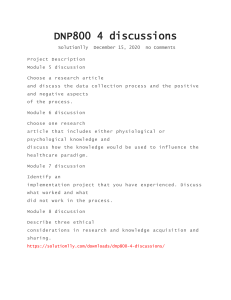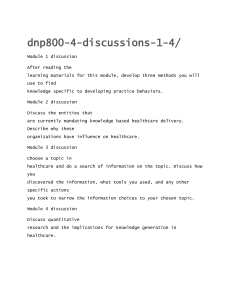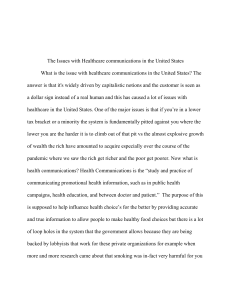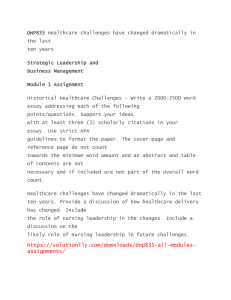AI in Healthcare: EVEscape COVID-19 Mutation Prediction
advertisement
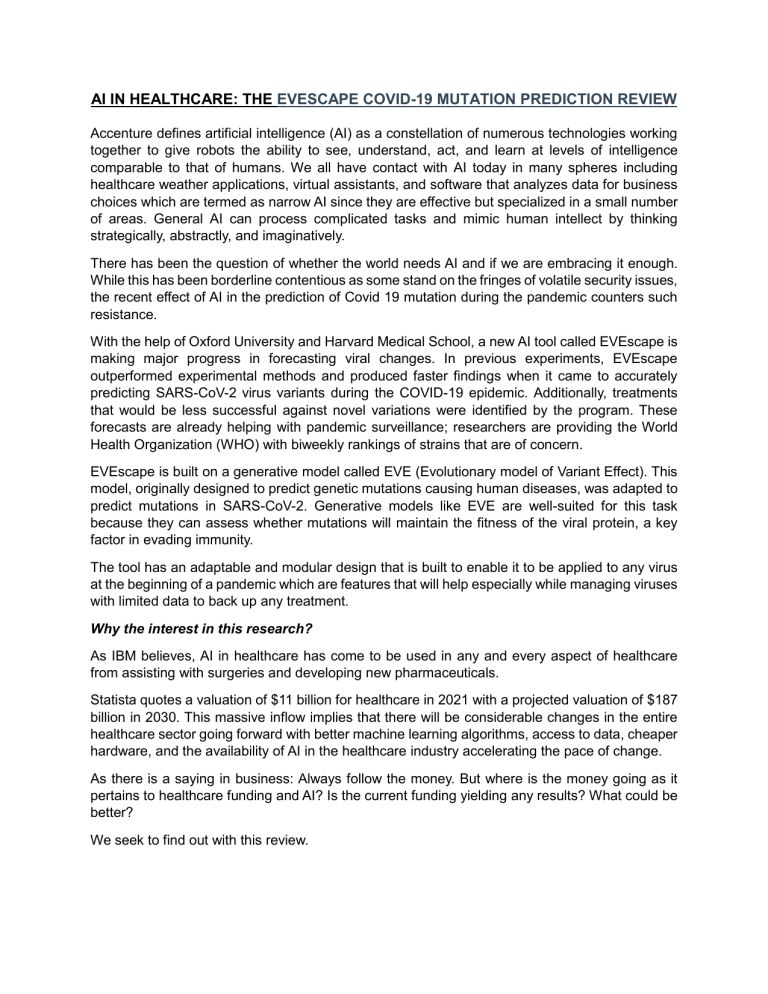
AI IN HEALTHCARE: THE EVESCAPE COVID-19 MUTATION PREDICTION REVIEW Accenture defines artificial intelligence (AI) as a constellation of numerous technologies working together to give robots the ability to see, understand, act, and learn at levels of intelligence comparable to that of humans. We all have contact with AI today in many spheres including healthcare weather applications, virtual assistants, and software that analyzes data for business choices which are termed as narrow AI since they are effective but specialized in a small number of areas. General AI can process complicated tasks and mimic human intellect by thinking strategically, abstractly, and imaginatively. There has been the question of whether the world needs AI and if we are embracing it enough. While this has been borderline contentious as some stand on the fringes of volatile security issues, the recent effect of AI in the prediction of Covid 19 mutation during the pandemic counters such resistance. With the help of Oxford University and Harvard Medical School, a new AI tool called EVEscape is making major progress in forecasting viral changes. In previous experiments, EVEscape outperformed experimental methods and produced faster findings when it came to accurately predicting SARS-CoV-2 virus variants during the COVID-19 epidemic. Additionally, treatments that would be less successful against novel variations were identified by the program. These forecasts are already helping with pandemic surveillance; researchers are providing the World Health Organization (WHO) with biweekly rankings of strains that are of concern. EVEscape is built on a generative model called EVE (Evolutionary model of Variant Effect). This model, originally designed to predict genetic mutations causing human diseases, was adapted to predict mutations in SARS-CoV-2. Generative models like EVE are well-suited for this task because they can assess whether mutations will maintain the fitness of the viral protein, a key factor in evading immunity. The tool has an adaptable and modular design that is built to enable it to be applied to any virus at the beginning of a pandemic which are features that will help especially while managing viruses with limited data to back up any treatment. Why the interest in this research? As IBM believes, AI in healthcare has come to be used in any and every aspect of healthcare from assisting with surgeries and developing new pharmaceuticals. Statista quotes a valuation of $11 billion for healthcare in 2021 with a projected valuation of $187 billion in 2030. This massive inflow implies that there will be considerable changes in the entire healthcare sector going forward with better machine learning algorithms, access to data, cheaper hardware, and the availability of AI in the healthcare industry accelerating the pace of change. As there is a saying in business: Always follow the money. But where is the money going as it pertains to healthcare funding and AI? Is the current funding yielding any results? What could be better? We seek to find out with this review. Are we there yet? This is a question we cannot answer yet. With the volume of investments going into AI for the healthcare industry, it is too early to tell but we cannot deny the impact of the investment made thus far. With huge strides made with the AI tool EVEscape towards curbing the COVID-19 scourge, one can only imagine how much more capital injection into the AI and healthcare industries will impact both industries. With increased funding and technical expertise in AI, there will be increased efficiency in operations in the healthcare industry where: Administrative functions will improve and be more efficient. Increased use of virtual nursing assistance will occur as a study shows that 64% of patients are comfortable with using AI round the clock to support nurses. There will be a reduction in the dosage error coming from self-medication. A nature medicine study found that 70% of patients don’t take insulin as prescribed. This could be fixed using an AI-powered tool that sits in the patient’s background like a router to flag errors. AI can recognize suspicious patterns in Insurance claims such as dubious billings for procedures not performed. Cause for optimism EVEscape is a significant development in the fight against viruses, offering the promise of proactive, predictive measures in the face of pandemics and future outbreaks. The University of Hawaii research team found that deploying deep learning AI technology can improve breast cancer risk prediction with the lead researcher pointing out that an AI algorithm can be trained on a much larger set of images than a radiologist. This algorithm can be replicated at no cost except for hardware. Another published research by scientists from Germany, the United States, and France found that AI recognized cancer better than experienced doctors. Judging from the foregoing, there is much optimism for what AI brings to the healthcare sector but at what cost? And who funds these developments especially as there is a perceived imbalance in the funding – the United States of America takes the larger chunk of the global funding for AI. Can the distribution of funding be evened out? I guess we may never find out. References 1. https://twitter.com/thenextweb/status/1714733226894205069 2. https://www.ibm.com/blog/the-benefits-of-ai-in-healthcare/ 3. https://www.statista.com/statistics/1334826/ai-in-healthcare-market-sizeworldwide/#:~:text=In%202021%2C%20the%20artificial%20intelligence,11%20billio n%20U.S.%20dollars%20worldwide. 4. https://neoteric.eu/blog/5-medical-challenges-that-can-be-solved-with-ai-inhealthcare/ 5. https://www.nature.com/articles/s41591-021-01273-1 6. https://www.ibm.com/topics/deep-learning 7. https://manoa.hawaii.edu/news/article.php?aId=11568 8. https://www.sciencedirect.com/journal/annals-of-oncology
